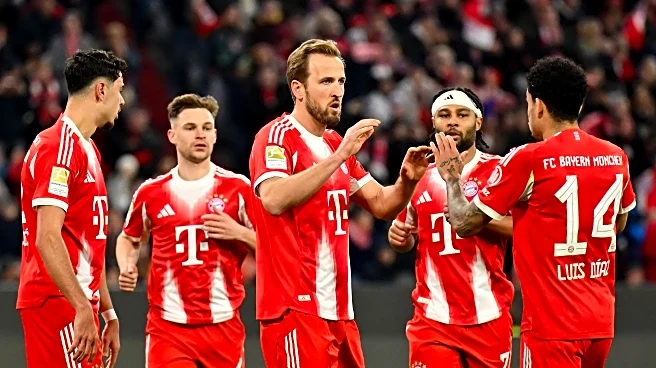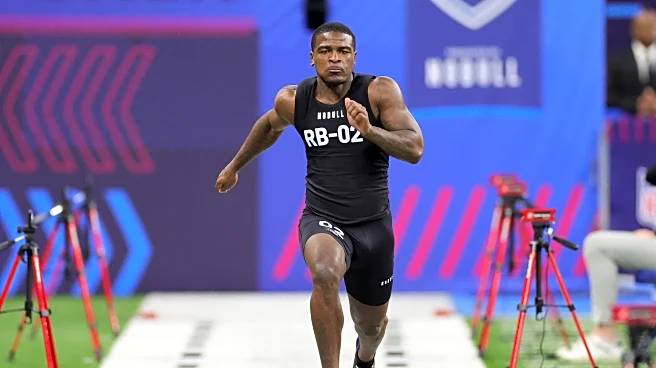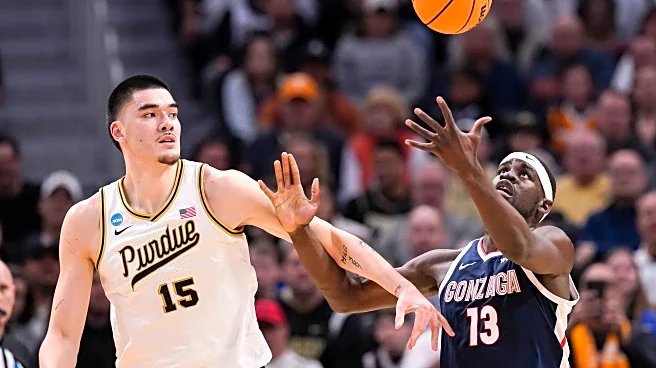What's Happening?
The 2026 Tour de France will feature a new team time trial (TTT) format for its opening stage in Barcelona, which has drawn criticism from Visma-Lease a Bike's CEO, Richard Plugge. The format, previously
tested at Paris-Nice, will determine general classification (GC) times based on the first rider from each team to cross the finish line, rather than the fourth rider as in previous Tours. Plugge expressed concerns that this approach undermines the team aspect of the TTT, turning it into a lead-out for the leader rather than a collective effort. Despite these reservations, Visma has historically performed well in TTT stages, winning in 2023 and 2025, and is expected to be a strong contender for the yellow jersey.
Why It's Important?
The change in the TTT format could significantly impact team strategies and the dynamics of the race. By focusing on the first rider's time, teams may prioritize their strongest rider, potentially altering the traditional team-based approach. This could lead to a shift in how teams allocate resources and manage their riders during the race. The format aims to create a more individual-focused competition from the outset, which may influence the overall excitement and unpredictability of the Tour. Teams like Visma, which have excelled in previous TTTs, may need to adapt their strategies to maintain their competitive edge.
What's Next?
The Tour de France will commence on July 4, 2026, with the TTT in Barcelona, followed by stages in the Pyrenees and across France. As teams prepare for the race, they will need to consider how the new format affects their strategy and rider selection. The third week of the Tour, featuring challenging stages to Alpe d'Huez, is expected to be decisive in the overall competition. Teams will likely focus on these stages to secure their positions in the GC, while adapting to the new TTT format to gain an early advantage.
Beyond the Headlines
The introduction of the new TTT format reflects broader trends in cycling to enhance spectator engagement and maintain suspense throughout the race. By emphasizing individual performance within a team context, the Tour organizers aim to balance team dynamics with individual achievements. This approach may influence future race designs and formats, potentially leading to more innovative and varied cycling competitions.










